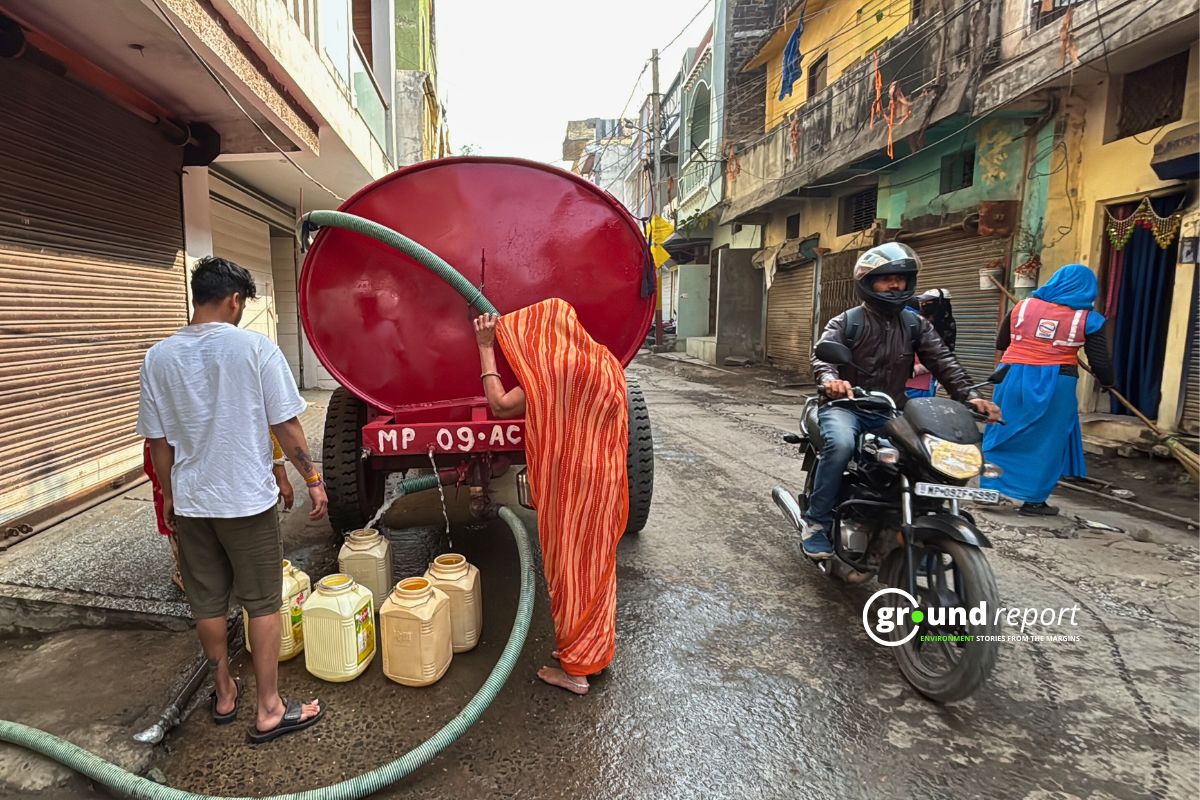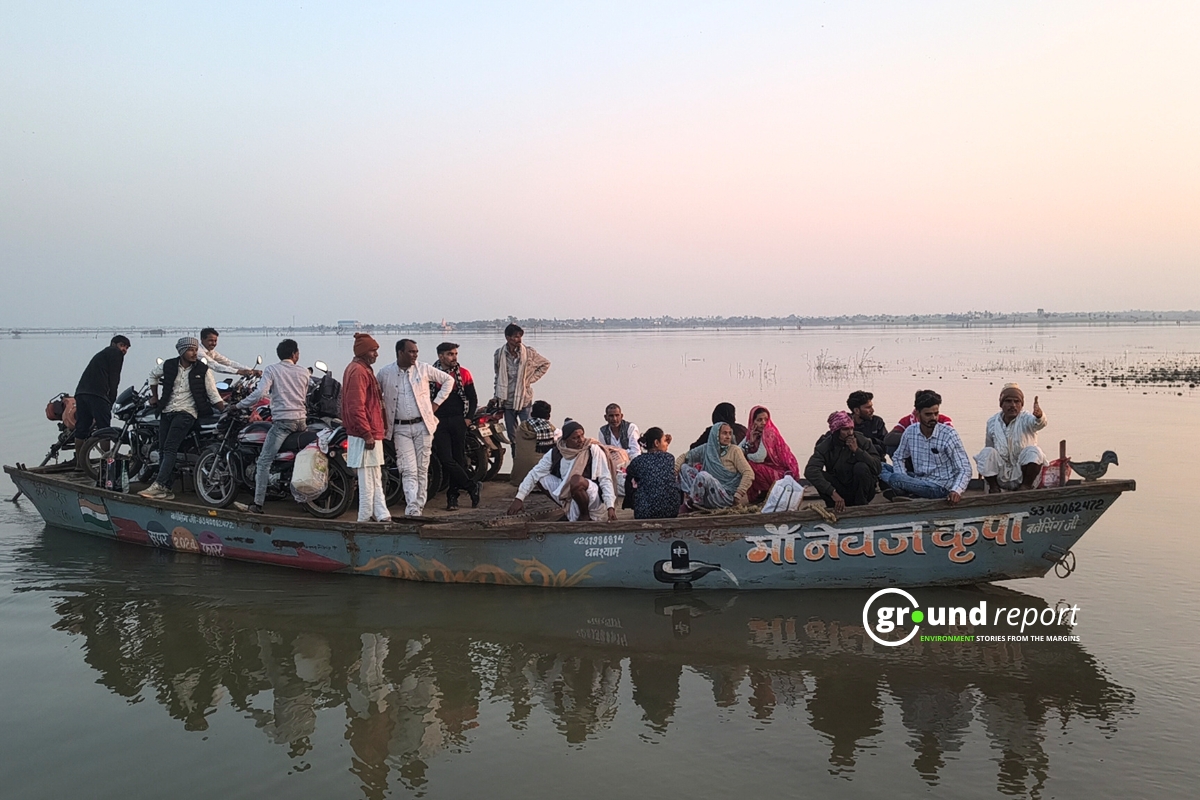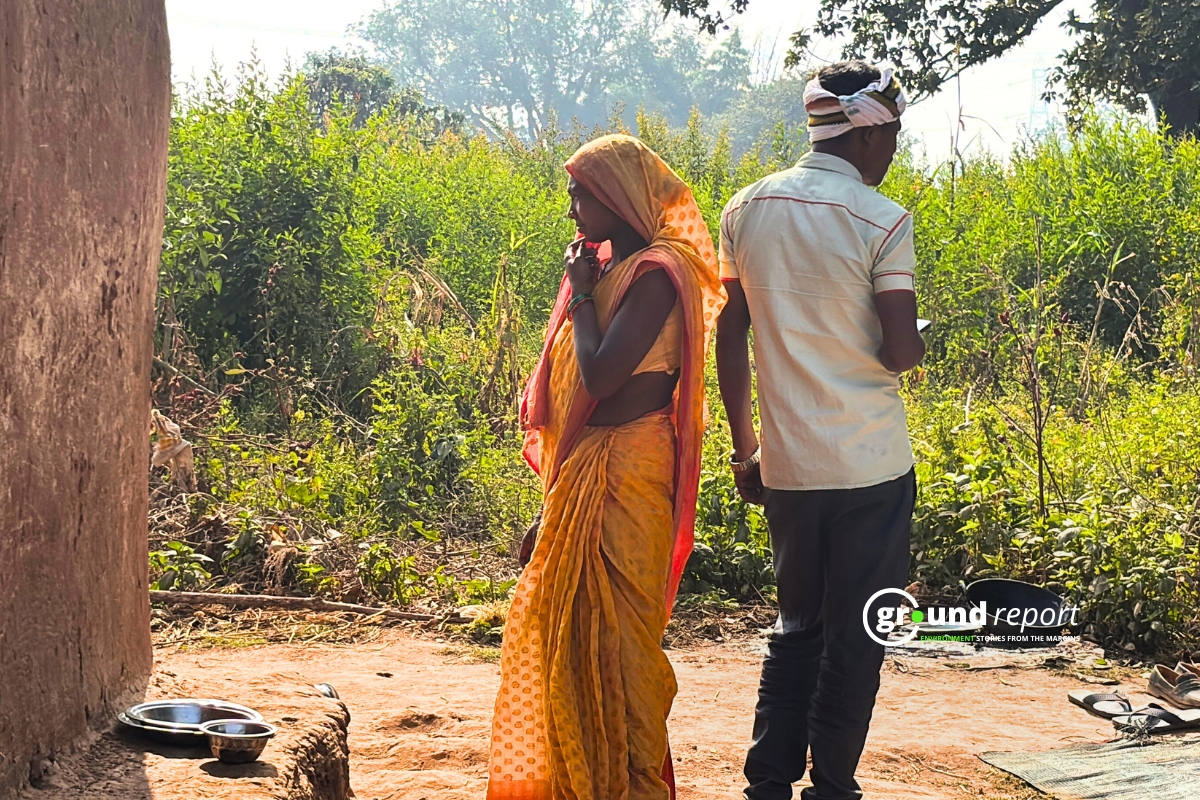Leh witnessed violent clashes today as protest demanding statehood and Sixth Schedule status for Ladakh spiraled out of control. The unrest began after the health of two hunger strikers deteriorated, sparking anger among demonstrators.
The protest, led by prominent educationist and climate activist Sonam Wangchuk, had been largely peaceful for weeks. But tensions rose when Sri Anchuk and Anchuk Dolma, who had joined a 35-day hunger strike, collapsed and were rushed to hospital. Their condition triggered panic among supporters and fueled a wave of unrest.
Soon after, crowds gathered outside the Leh Hill Council building. Stones were hurled, vehicles were torched, and confrontations broke out with the police. A security vehicle was set on fire near the BJP office, where smoke was seen rising from the premises.
Police responded with teargas shells and baton charges to disperse the crowd. Officials confirmed the deployment of additional paramilitary forces, including four companies of the Indo-Tibetan Border Police (ITBP) and four units of the Central Reserve Police Force (CRPF). A flag march was carried out in sensitive areas.
Sonam Wangchuk, who himself had been on a 15-day hunger strike before ending it on Wednesday afternoon, appealed for calm. “My message of peaceful path failed today. I appeal to youth to please stop this nonsense. This only damages our cause,” he said in a video posted on X.
The Leh Apex Body (LAB), an umbrella group of social, political, and religious organizations, has been spearheading the agitation. The group is demanding constitutional guarantees, statehood for Ladakh, and inclusion under the Sixth Schedule, which provides protections for tribal communities.
“Our protest is peaceful, but people are getting impatient. The situation may get out of our hands. We cannot end the hunger strike until some agreement is reached,” said Chering Dorjey, co-chairman of the LAB.
Tensions have been rising in Ladakh since 2019, when the region was carved out as a Union Territory following the abrogation of Article 370. Many residents say the move stripped them of constitutional safeguards, leaving their cultural and land rights vulnerable.
The Centre has scheduled talks with representatives of LAB and the Kargil Democratic Alliance (KDA) on October 6. But protest leaders have called the date too late and are demanding immediate discussions. “Our demand is immediate action. The people of Ladakh cannot wait any longer,” said one protest organizer during Wednesday’s rally.
In solidarity with Leh, Kargil will observe a complete shutdown on Thursday. “The movement is gaining momentum. Tomorrow, Kargil will remain shut to show solidarity and send a strong message to New Delhi,” said Sajad Kargali, a member of the organizing committee.
Political leaders have also weighed in on the unrest. National Conference MLA Tanvir Sadiq said the protests reflected a larger failure of governance. “It is very unfortunate that everything has been mishandled. The way J&K is being mishandled, Ladakh is also being mishandled in a similar way. While this is true, we condemn violence and hope that the central government sitting in Delhi will sit down and talk with the people of Ladakh,” Sadiq told ANI.
The clashes forced the cancellation of the annual Ladakh festival, which had been underway since Sunday. Lieutenant Governor Kavinder Gupta had been scheduled to attend its closing ceremony on Wednesday.
As night fell, security forces remained deployed in key areas of Leh. Protest leaders reiterated that their struggle would continue until constitutional guarantees were secured.
For now, the streets of Ladakh remain restless, with its people demanding answers and protections that they say are long overdue.
Support us to keep independent environmental journalism alive in India.
Keep Reading
Small Wild Cats in Big Trouble: India’s First National Report Released
After Tragedy, Families Face Delays in Tiger Attack Compensation
Stay connected with Ground Report for underreported environmental stories.
Follow us onX, Instagram, and Facebook; share your thoughts at greport2018@gmail.com; subscribe to our weekly newsletter for deep dives from the margins; join our WhatsApp community for real-time updates; and catch our video reports on YouTube.
Your support amplifies voices too often overlooked, thank you for being part of the movement.






